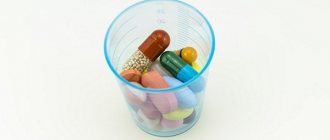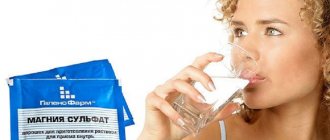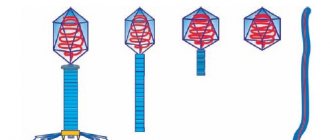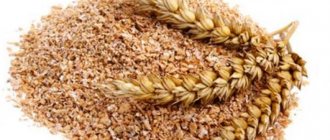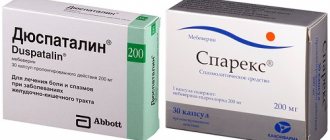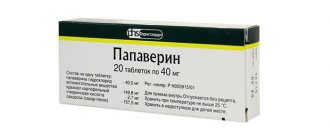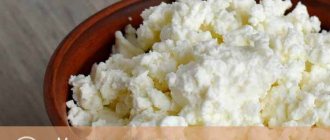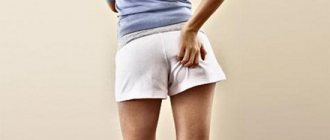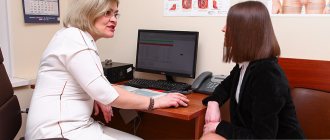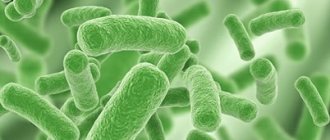Diarrhea in adults or children is a common problem that occurs frequently and requires careful attention to diet. Therefore, it is important to know whether apples can be eaten if you have diarrhea, and what effect these fruits have on the body of a person suffering from diarrhea.
The therapeutic diet for stool disorders is aimed at quickly restoring the normal functioning of the digestive system, and in most cases it does not recommend consuming fresh fruits.
Rare exceptions include apples, which are an irreplaceable source of vitamins and microelements vital for the full functioning of the body.
Composition and beneficial properties
Apples are considered a “storehouse” of plant dietary fiber, which stimulates intestinal motility and improves the functioning of the gastrointestinal tract. They contain pectins, which are considered natural prebiotics that protect the digestive system from signs of intoxication.
Fruits also contain components called polyphenols - plant antioxidants that protect the body from the aggressive effects of environmental factors. The fruits contain a large amount of water. This is important, since during diarrhea the body loses a large amount of fluid, and the presence of these fruits in the diet makes up for this deficiency.
Healthy fruits contain vitamins A, B, E, C, K, potassium, calcium, magnesium. Thanks to their unique composition, apples restore normal intestinal microflora and accelerate the removal of waste, toxins and waste products from the body.
Nutrition for dysbacteriosis. Important details.
11.10.2021
Dysbacteriosis is a change in the usual microflora of the human body. This disease manifests itself due to congenital abnormalities of the gastrointestinal tract, intestinal infections, radiation or surgery . But still, the main reason for the appearance of this disease is the use of various antibiotics.
Characteristic signs of dysbiosis are:
- increased gas formation,
- weakness,
- poor digestion of food,
- loose stools,
- increased fatigue.
- in severe cases: weight loss, intoxication and dehydration.
The main component of treatment is proper nutrition.
- It is necessary to avoid eating spicy, fatty and fried foods, fruits, pickled and pickled vegetables.
- It is also not recommended to eat foods high in sugar, which provoke fermentation in the intestines .
- You should not drink water while eating; it dilutes the gastric juice and disrupts the digestion of food.
- It is advisable to drink coffee and tea some time after eating.
- If possible, avoid alcohol, or choose strong drinks, such as whiskey or vodka. Champagne, beer and wine cause aggravation - rumbling, bloating .
- Avoid high-fiber vegetables such as beets, cabbage, green lettuce and spinach. Plant fiber causes irritation of the colon mucosa. In people who are sick with dysbiosis , consumption of these products causes diarrhea (severe diarrhea).
- Eat as much protein as possible; it is found in meat; it must be stewed or boiled.
- Today, the task of obtaining tasty and healthy food with a high content of natural vitamins is greatly simplified by a double boiler. Since products cooked in it do not come into direct contact with liquid, this helps them retain their beneficial properties.
- You only need to eat stale bread.
Nutritional treatment does not mean completely limiting the number of servings or observing time intervals for taking them. You can eat as much as you want, whenever you want. Just listen to your body, because it is your best advisor.
intestinal microflora, the diet must include foods or preparations containing bifidobacteria or lactobacilli , which will restore the microflora. These include potato, rice, pumpkin extracts, as well as carrot juice and whey.
In case of Pseudomonas aeruginosa disorder, you need to eat as much red sweet pepper and black currants as possible.
For staphylococcal - garlic, strawberries, blueberries, raspberries.
In case of proteus exacerbation, raspberries, cranberries, and garlic are suitable for nutrition.
For candidiasis , mint, fennel, lingonberries, and wild garlic will help. For putrefactive inflammation, you need to have cumin, lingonberries and currants on hand.
During an exacerbation, the main dishes should be: pureed porridge, for convenience you can use a blender, soups with water or weak broth, blueberry and cherry jelly, crackers, strong tea. Gradually you can add boiled fish, steamed cutlets, pureed cottage cheese, and meatballs.
Published in Nutrition and Diet Premium Clinic
Use for diarrhea
Answering the question whether you can eat apples if you have diarrhea, doctors emphasize that eating fresh fruits is strictly not recommended. This can cause diarrhea from apples and deteriorate a person’s well-being. Fruits with stool upset should be heat treated.
In such cases, the following are allowed for use:
- pureed;
- dried;
- baked;
- apple compotes and jelly.
A simple and affordable recipe for preparing fruits - simply grind them to a puree. This is done using a blender or strainer. The puree does not lose any beneficial properties or taste.
We recommend: Causes of diarrhea and pain in the right side of the abdomen
If desired, fruit puree can be replaced with puddings, jelly, and jellies. A baked apple or compote is considered an excellent alternative. During heat treatment, fruits do not lose their beneficial properties and do not have an aggressive, irritating effect on the mucous membranes of the digestive tract.
Constipation in an adult
Now let's talk about another form of intestinal motility disorder - by the way, more common - constipation.
With systematic constipation, as with acute diarrhea, you should definitely consult a doctor, since their cause can also be some serious intestinal disease.
What foods can you eat for constipation?
It is a mistake to believe that in order to cope with constipation, you should eat everything that you cannot eat with diarrhea. If you are constipated, you should also not eat fatty, fried and spicy foods, smoked meats and canned food.
It is recommended that the “therapeutic” menu for constipation consist of the following products and dishes:
- boiled lean meats and fish
- soups with meat broth
- dairy and fermented milk products (except for cheeses)
- black bread, grain products
- durum wheat pasta
- vegetable oils (olive, flaxseed), butter
- vegetables and fruits (exceptions below)
- green tea, freshly squeezed juices
What should you not eat if you are constipated?
If you are constipated, you should exclude from your diet:
- fatty meats and fish
- smoked meats and canned food
- hot sauces, spices and seasonings
- rice and semolina
- baked goods and confectionery
- radishes, turnips, garlic and onions; mushrooms
- blueberries, cranberries, cherries, lemon
- coffee, strong black tea
Choosing the right fruit
To get the most benefit from apples, you need to choose the right fruit. Not every variety of fruit is suitable for use in case of stool upset. Sweet varieties of fruits that contain a minimal amount of acids are considered suitable for dietary nutrition.
Recommended varieties:
- Robin.
- Melba.
- Golden Delicious.
- Lungwort.
You should also pay close attention to the appearance of the fruit - in no case should it have traces of rot, mold or other damage. It is best to give preference to homemade apples that have not been treated with various pesticides and chemicals.
Apples for diarrhea in pregnant women and children
Apples are no less beneficial for children and pregnant women suffering from diarrhea. But it is important for parents to remember that under no circumstances should they give their baby fresh fruit. You can offer your child baked or dried fruits, compote or apple juice.
These fruits have pronounced astringent properties, help replenish potassium deficiency, cleanse the body of toxins and decay products. Regular consumption guarantees the full functioning of the digestive system.
During pregnancy, eating sweet apples is not only not prohibited, but is also recommended. One of the most famous and accessible recipes that helps restore stool in the shortest possible time is to grate a large fruit on a fine grater, without adding sugar, and eat it several times throughout the day. Doctors advise eating at least 0.5-1.5 kg of fruits per day.
Diarrhea in an adult
The first step is to find out whether your illness is associated with an intestinal infection, because with acute diarrhea you should immediately consult a doctor. It is precisely because diarrhea can have a different nature that consultation with a specialist is mandatory. This article is about a chronic disorder of intestinal motility, such as diarrhea, not associated with infection or other serious diseases.
“What can you eat if you have diarrhea?” - a question that concerns everyone who is unlucky enough to encounter this disease. However, first of all, you need to understand the question of what you can and should drink for diarrhea.
The fact is that diarrhea causes severe dehydration - which is why it is so important to replenish the amount of fluid and nutrients that leave the body during this unpleasant period.
Apple juice will help you replenish everything you need, but you should forget about other juices - citrus, pineapple and tomato - for a while, since they all cause additional intestinal irritation. Drinking plenty of fluids to improve well-being and maintain health during this period is recommended to drink 300 ml of liquid every 30 minutes.
What foods can you eat for diarrhea?
The right diet, along with selected treatment, helps normalize intestinal function. By following a few simple rules regarding your diet, you will feel better. Perhaps some healthy dishes will even become part of your diet forever, which will be a pleasant bonus to your recovery.
Let's find out which foods are good for diarrhea, which ones you should avoid - and why.
Diet for diarrhea in adults
It is recommended that the “therapeutic” menu for diarrhea consist of the following products and dishes:
- low-fat broths based on meat or fish
- lean meat or fish, steamed/oven
- hard boiled eggs
- white bread crackers
- rice porridge, rice water
- weak teas
- fresh bananas, baked apples
Such a bland menu often makes you want to add spices - resist this temptation! Spices will only worsen your condition.
What should you not eat if you have diarrhea?
To ensure recovery occurs as quickly as possible, be sure to exclude fatty and fried foods from your diet. In addition, you should avoid foods and dishes such as:
- carbonated drinks and fruit juices
- dairy products
- smoked and canned foods, marinades and pickles
- confectionery
- fresh vegetables and fruits, legumes, mushrooms
- flour (except for white bread and croutons made from it)
Treatment of diarrhea
Be attentive to your health and the signals of your body! If, despite proper nutrition, the problem remains, then you should immediately consult a doctor, because diarrhea may indicate a more serious illness. In this case, only a specialist can make the correct diagnosis and prescribe the necessary treatment.
However, it often happens that the cause of diarrhea lies in nervous tension and stress - then it is worth adding proper rest to a special diet, which will help you quickly cope with emotional discomfort and the illness caused by it.
